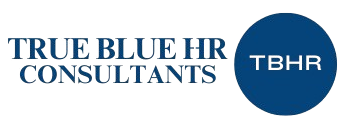
The world of work has changed dramatically in recent years, with the rise of remote and hybrid work models being one of the most profound shifts. What was once a temporary solution to the pandemic has now become a permanent fixture in many organizations. According to a 2023 study by McKinsey, 58% of employees in the U.S. are able to work remotely at least one day a week, and 35% work remotely full-time. As more organizations embrace these models, HR departments must adapt their practices to manage remote and hybrid teams effectively.
In this blog, we will explore the challenges and solutions that come with managing remote teams, and how True Blue HR Consultants (TBHR) can support businesses through this transition.
The Challenges of Managing Remote and Hybrid Teams
Managing a remote or hybrid workforce presents unique challenges for HR leaders and organizations. These challenges can affect everything from communication and collaboration to employee engagement and performance. Below are some of the key hurdles HR departments face:
- Maintaining Communication and Collaboration
One of the most significant challenges in remote and hybrid work is ensuring consistent communication across teams. In traditional office settings, spontaneous interactions and face-to-face communication help maintain the flow of information. In a remote or hybrid environment, however, employees often work in silos, leading to a breakdown in collaboration.
- Fostering Employee Engagement
Remote work can sometimes result in employees feeling disconnected from the organization, leading to lower engagement levels. Without the social interactions and shared experiences that occur in an office setting, employees may struggle to build relationships with their colleagues or feel disengaged from the company’s mission.
- Tracking Performance and Productivity
Monitoring employee performance and productivity becomes more complex when teams are not physically present. Without the ability to oversee employees in real-time, HR leaders must find new ways to measure and assess performance accurately while avoiding micromanagement.
- Managing Work-Life Balance
Remote work has blurred the lines between professional and personal life. Employees often struggle with maintaining a clear boundary between work and home life, leading to burnout and increased stress. HR must address these issues by promoting a healthy work-life balance and providing support for mental well-being.
- Creating a Unified Company Culture
Maintaining a strong company culture in a virtual environment can be a challenge. In-office settings naturally foster a sense of camaraderie and shared purpose. In remote and hybrid settings, HR leaders must find new ways to nurture culture and ensure employees feel connected to the organization’s values and mission.
Solutions for Managing Remote and Hybrid Teams
While these challenges are significant, they are not insurmountable. HR leaders can implement a range of strategies to address these issues and create an environment where remote and hybrid teams thrive.
- Invest in Digital Communication Tools
To maintain effective communication and collaboration, organizations must equip their teams with the right tools. Video conferencing platforms, project management software, and communication apps like Slack can bridge the gap between remote employees. Regular check-ins, virtual team meetings, and collaborative tools allow teams to stay connected and informed.
- Focus on Employee Engagement and Recognition
Employee engagement is vital in any work model, but it becomes even more critical in remote and hybrid settings. HR should create opportunities for virtual social interactions, team-building exercises, and regular feedback loops. Celebrating achievements, both big and small, helps employees feel valued and connected to the company’s mission.
TBHR can guide organizations in designing virtual team-building activities, employee recognition programs, and strategies for maintaining morale in remote environments. They help businesses tailor their engagement strategies to ensure employees feel motivated and appreciated, even from a distance.
- Shift to Outcome-Based Performance Metrics
Rather than focusing solely on hours worked or traditional metrics, HR departments should emphasize outcome-based performance measures. Setting clear, measurable goals and providing employees with the autonomy to meet them can help avoid micromanagement while still maintaining accountability.
True Blue HR Consultants assists organizations in shifting to outcome-based performance systems. TBHR helps HR teams establish clear performance indicators, set expectations, and train leaders on how to manage performance remotely without resorting to micromanagement.
- Promote Work-Life Balance and Employee Well-Being
Maintaining a healthy work-life balance is crucial for remote and hybrid workers, especially as the boundaries between home and work continue to blur. HR departments should establish clear expectations regarding working hours, encourage employees to take regular breaks, and provide resources to support mental and emotional well-being.
TBHR can help companies implement wellness programs that focus on mental health, time management, and work-life balance. They also offer leadership coaching to equip managers with the skills needed to support their teams’ well-being effectively.
- Cultivate a Strong Remote Culture
While building company culture remotely is challenging, it’s not impossible. HR can take proactive steps to ensure that organizational values are communicated clearly and consistently. Virtual events, recognition programs, and open communication about the company’s goals and mission can foster a sense of belonging.
TBHR helps businesses maintain a strong company culture by creating tailored initiatives that align with their values. Through workshops, virtual retreats, and ongoing employee engagement programs, TBHR ensures that company culture remains robust, even in a remote or hybrid setting.
Why True Blue HR Consultants is Your Partner in this Transition
The transition to remote and hybrid work requires HR departments to adopt new strategies, tools, and practices. At TBHR, we specialize in helping organizations navigate these challenges by offering comprehensive support in leadership development, employee engagement, and performance management.
Our expertise in strategic HR interventions and organizational development ensures that companies can adapt to the future of work while maintaining a positive and productive work environment. Whether you are looking to improve communication, enhance employee engagement, or streamline performance management, TBHR provides the insights and solutions you need.
Conclusion
The future of work is here, and remote and hybrid models are no longer just trends—they are the new reality. While managing remote and hybrid teams presents challenges, it also offers opportunities for innovation and growth. By embracing digital tools, focusing on employee engagement, and adapting performance metrics, organizations can successfully manage their remote workforce.
True Blue HR Consultants stands ready to support businesses through this transition, offering expert guidance to ensure that HR practices evolve to meet the demands of the modern workplace. With the right strategies and support, your organization can thrive in this new era of work.
-
Previous Post
The Impact of AI on HR: Are We Ready for the Change?
Post a comment Cancel reply
Related Posts
Why Have a Team If You’re Going to Micromanage?
A team exists to share the workload and make the most of everyone’s unique strengths.…
The Impact of AI on HR: Are We Ready for the Change?
Artificial Intelligence (AI) is transforming industries across the globe, and Human Resources (HR) is no…
5 Key Strategies to Attract and Retain Top Talent in 2024
The talent market is becoming increasingly competitive, especially as businesses evolve to meet the challenges…
Navigating Generational Shifts in the Organizational Workplace
In today’s dynamic work environment, organizations are witnessing a significant generational shift in the workplace.…









